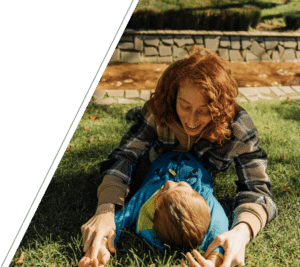Therapy for Children and Adolescents in san francisco
Find the support your child needs.
Teen Therapy in San Francisco: Helping Adolescents Navigate Life’s Challenges.
It’s tough being a child or teenager.
We all know growing up can be difficult. It’s hard navigating through peer relationships, school, and figuring out yourself. Life isn’t easy for any of us, and young people sometimes have to work through the same kind of losses, setbacks, or traumatic experiences adults do. These days, young people have to do all that while also straddling in-person and online spaces. That’s why it helps to have a trusted ally (like a therapist) for kids to talk to.
Is your child or teen…
- Over-worrying about small things
- Staying up or losing sleep
- Struggling to complete school work due to perfectionism or procrastination
- Anxious about tests
- Overly clingy with parents or friends
- Preoccupied with thoughts of death, dying, or other negative events
Instead of…
- Taking difficulties in stride
- Feeling pride in their accomplishments
- Feeling secure in who they are
- Forming supportive bonds with friends
- Understanding who they are
- Confident in becoming more independent
How Can a Therapist for Adolescents in San Francisco Help?
Therapy can help answer the big questions.
Having a trusted person outside their family and day-to-day life can give young people a place to figure out how to steer through whatever problems they are experiencing.
Sometimes, talking about the things they are struggling with or insecure about is difficult with family or friends, and therapy can be a place to work through the “first draft” of those thoughts or feelings. A therapist can provide support as well as teach skills or information to help you or your child.


Effective Therapy for Children in San Francisco looks different for every family.
Therapy should fit your child.
We understand that mental health support for children, adolescents, and families must be tailored to each individual. That’s why our team creates personalized treatment plans for each child or adolescent.
Our child and adolescent therapy services are available in person or via video call, offering individual and family therapy. We provide a wide range of strategies to address issues such as:
- Anxiety or feeling overwhelmed
- Depressed mood or lack of motivation
- Identity and self-discovery
- Social isolation or interpersonal difficulties
- Problems related to internet, gaming, or social media
- Trauma or loss
Get Started With Teen Therapy
Connect with us and learn to work with your worries.
Helping children and teens with anger or acting out.

Get help managing anger with personalized therapy for children and adolescents in San Francisco
Anger is corrosive.
Anger is not all bad. Sometimes, anger can motivate us to action when we’ve been treated unfairly or when we need to stand up to injustice. Some people don’t get angry enough and end up conceding or taking too much responsibility.
Unfortunately, young people can get overwhelmed by anger, whether justified or not, and acting on anger can sometimes be self-defeating. Some children and teenagers get too angry, are too quick to blame others, and cannot escape feeling unheard or unrecognized. We work with young people to reduce the damage anger can cause to relationships and opportunities in life.
We can choose what we do with anger.
The real problems come from not being able to let go of anger when it doesn’t really matter or channeling that anger into destructive behaviors. “Anger management” is about addressing both sides of anger, practicing not getting as mad about things, and learning how to mitigate the damage when one does get mad.
Teen Therapy in San Francisco helps your children develop the tools they need to succeed in life.
Therapy provides children of all ages with:
- A safe place to get mad and work through angry feelings
- An outside perspective from someone who’s not a friend or family member (who can be too involved)
- A place to learn new skills and approaches to reducing angry feelings
- Someone to support, encourage, and hold one accountable
- A sympathetic ear to listen to grievances and look for solutions
FAQ about Therapy For Children And Adolescents
What does a child and adolescent therapist do?
A child and adolescent therapist focuses on improving the emotional well-being of young individuals through various therapeutic techniques. These professionals, often clinical psychologists or other specialized clinical staff, are trained to understand the unique challenges faced by children and adolescents. Their work can include psychological assessments to understand a child’s needs, therapy sessions that involve the child and sometimes parents, and coordination with other staff members to provide comprehensive care.
Child therapists are skilled in addressing a wide range of issues, from anxiety and depression to eating disorders and substance abuse. They utilize evidence-based assessment and treatment methods to create personalized therapy plans. By fostering a safe and supportive environment, therapists encourage children to express themselves freely, helping them work through their difficulties.
Moreover, the collaboration between therapy and parents is crucial in the therapeutic process. Therapists often guide parents on how to support their child’s emotional and psychological development outside of sessions, ensuring continuity of care at home. This holistic approach is aimed at fostering resilience, self-understanding, and healthy coping mechanisms in children and adolescents, laying a foundation for long-term mental health and well-being.
How do I know if my child needs a therapist?
Recognizing when your child might benefit from seeing a therapist can be challenging. You might observe changes in their behavior, such as withdrawal from social activities, a drop in academic performance, or the emergence of high-risk behaviors. These signs could indicate your child is struggling with mental health issues like depression, anxiety, or post-traumatic stress disorder. Adolescents and their families in San Francisco, including areas like South San Francisco, CA 94123, and CA 94107, have access to a range of behavioral health services designed to support personal growth and family dynamics.
San Francisco family resources, including UCSF Benioff Children’s psychiatry and psychology services, offer nationally renowned care, employing marriage and family therapists and cognitive-behavioral therapy, among other modalities. These services often provide a sliding scale for fees, making therapy for children more accessible. If you notice your child displaying signs of distress or if they express feelings of overwhelming sadness or fear, it might be time to consider seeking professional help. San Francisco has numerous resources and therapists dedicated to helping adolescents and their families navigate these challenges toward a healthier future.
What is the most common therapy for children?
One of the most common and effective forms of therapy for children is Cognitive-Behavioral Therapy (CBT). CBT is a structured, time-limited therapy that focuses on identifying and changing negative thought patterns and behaviors. It helps children develop coping skills for dealing with various challenges, such as anxiety, depression, and stress. Through CBT, children learn to recognize their thought patterns and understand how these thoughts affect their feelings and behaviors, empowering them to respond to challenging situations in healthier ways.
This approach is highly interactive and involves both the child and the therapist working together to set goals and solve problems. Therapists often incorporate play and other engaging activities to make the therapy process more relatable and effective for children. CBT’s practical focus on problem-solving and skill-building makes it particularly suitable for helping children navigate the complexities of growing up, making it a preferred choice among therapists for children’s mental health care.
What is the best therapy for complex childhood trauma?
Trauma-Focused Cognitive-Behavioral Therapy (TF-CBT) stands out as the best therapy for children who have experienced complex trauma. This evidence-based approach specifically targets the emotional and psychological challenges that arise from traumatic experiences. TF-CBT is designed to help children process and make sense of their trauma, develop coping mechanisms, and gradually reduce trauma-related symptoms such as fear, anxiety, and depression.
During TF-CBT, therapists work closely with children and their caregivers, providing support and strategies to rebuild a sense of safety and trust. The therapy includes several components, such as trauma narration and processing, in which children are encouraged to share their traumatic experiences in a safe environment. By addressing the complex effects of trauma on both the child and their family, TF-CBT facilitates healing and promotes resilience, offering hope for a more stable and positive future.
How does therapy help adolescents?
Therapy provides adolescents with a safe and confidential space to explore their feelings, thoughts, and behaviors under the guidance of a clinical psychologist or other trained professionals. It focuses on enhancing the emotional well-being of teenagers by helping them understand and manage the challenges of adolescence, such as identity issues, peer pressure, and academic stress. Through therapy, adolescents learn effective coping skills, improve communication with their families, and develop a stronger sense of self.
In therapy, the collaboration between the therapist, the adolescent, and oftentimes,
parents is key to fostering an environment of trust and open communication. This supportive setting allows teenagers to express their concerns without fear of judgment, enabling them to work through issues related to self-esteem, relationships, and future goals. By equipping adolescents with the tools they need to navigate life’s challenges, therapy contributes to their overall growth and development, preparing them for a healthier, more fulfilling future.
What is the best form of therapy for children?
The best form of therapy for children often depends on the individual child’s needs and the specific challenges they are facing. However, Cognitive-Behavioral Therapy (CBT) is widely regarded as one of the most effective therapeutic approaches for a broad range of issues, including anxiety and depression. CBT helps children understand the connection between their thoughts, feelings, and behaviors, teaching them strategies to modify negative thought patterns and adopt healthier coping mechanisms.
CBT is particularly beneficial because it is adaptable; it can be tailored to the age and developmental stage of the child. Through interactive sessions that may include games and role-playing, therapists engage children in a way that is both educational and enjoyable. This active participation helps kids gain insights into their behavior and feelings, equipping them with skills they can use to cope with difficulties in their lives. As such, CBT’s versatility and focus on skill-building make it an optimal choice for children’s therapy.
What is the most effective treatment for traumatized adolescents and children?
For adolescents and children who have experienced trauma, Trauma-Focused Cognitive-Behavioral Therapy (TF-CBT) has proven to be the most effective treatment. This specialized form of therapy is designed to address the unique psychological needs of traumatized youths, helping them process their experiences and reduce symptoms of trauma, such as anxiety and depression. TF-CBT incorporates techniques that encourage kids to express their feelings about the trauma in a safe and controlled environment, fostering their emotional healing.
TF-CBT not only aids kids in coping with the memories and impacts of their trauma but also strengthens their resilience and capacity to deal with future stressors. By engaging children in various activities and discussions, therapists help them reconstruct their understanding of the traumatic event, reducing its power over their current and future well-being. The goal is to empower traumatized children and adolescents, giving them the tools they need to overcome their experiences and move forward with confidence.
Should a 14 year old go to therapy?
Yes, a 14-year-old can benefit greatly from going to therapy, especially if they are experiencing emotional or behavioral issues, such as disruptive behaviors, suicidal thoughts, or difficulties related to their sexual orientation. Therapy provides a supportive environment where adolescents can explore their feelings, understand their behaviors, and develop healthy coping skills. At this age, individual therapy can be particularly effective, as it offers personalized attention and care tailored to the teenager’s specific needs and challenges.
In addition to individual therapy, family therapy may also be beneficial, allowing the adolescent and their family members to improve communication and resolve conflicts. Services such as those offered by the Masonic Center for Youth and Families in Mill Valley incorporate both individual and family therapy, utilizing approaches like dialectical behavior therapy to address a range of mental health issues and promote personal growth. Starting therapy at 14 can help adolescents navigate the complexities of teenage years with greater resilience and confidence.
3 Steps to Get Started
Call Us
Call us for a free 20-minute consultation. Get your questions answered and understand the next steps.

